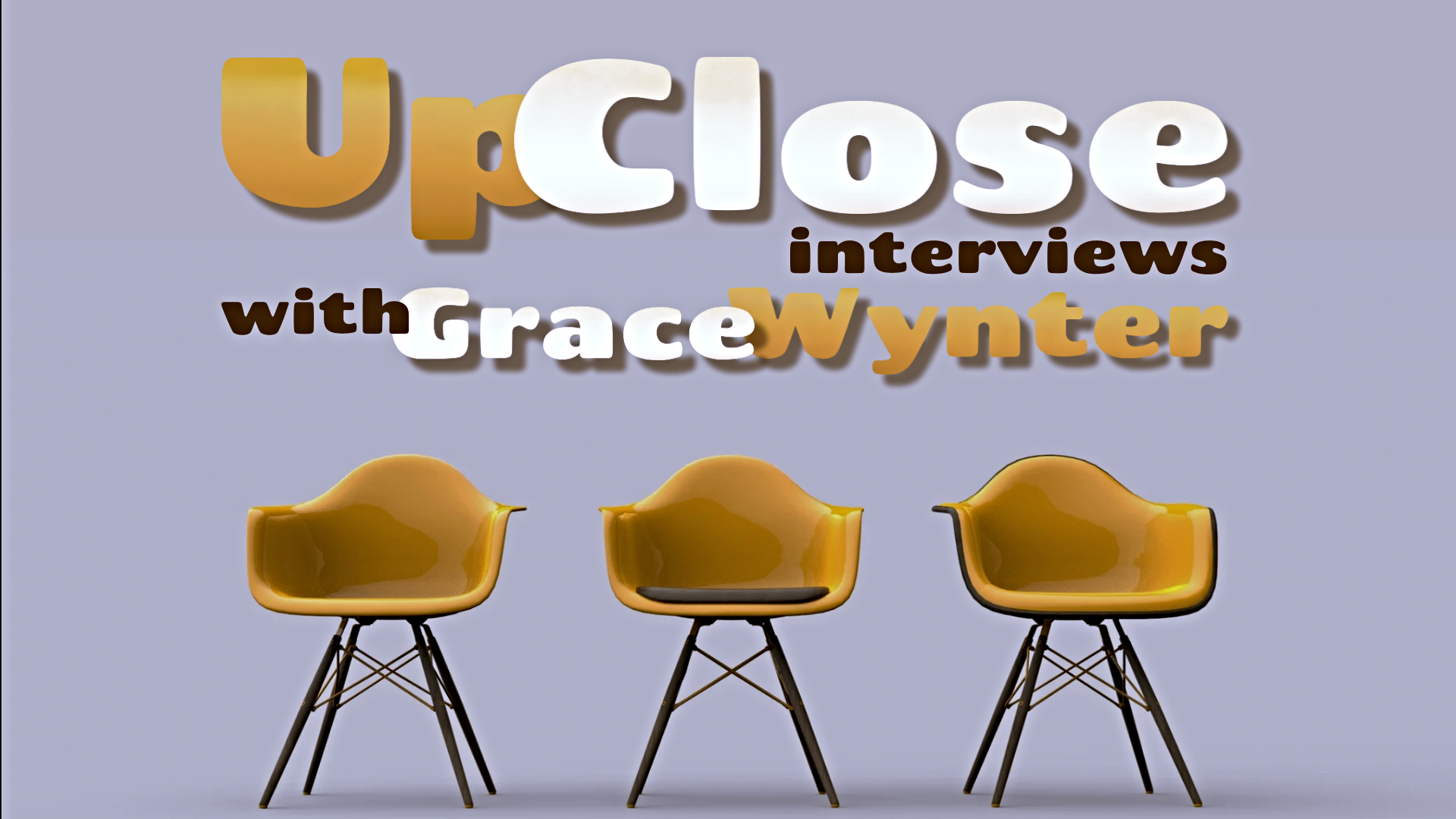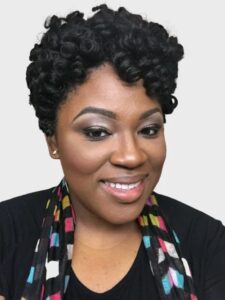Up Close: Margeaux Weston – Wisdom From an Author and Former Acquisitions Editor
By Grace Wynter | October 3, 2024 |
 Greetings, WU Family! Today’s Up Close Q&A features fellow author, editor, and friend Margeaux Weston. I first got to know Margeaux when we were both a part of Sourcebooks’ BIPOC Editorial Training Program. Even back then, Margeaux displayed a keen eye for shaping stories, so I wasn’t surprised when she soon landed an agent, published a non-fiction title with Hachette, and became an acquisitions editor. Today Margeaux shares the wisdom she’s gained along her journey and provides a valuable behind-the-scenes look at the publishing industry.
Greetings, WU Family! Today’s Up Close Q&A features fellow author, editor, and friend Margeaux Weston. I first got to know Margeaux when we were both a part of Sourcebooks’ BIPOC Editorial Training Program. Even back then, Margeaux displayed a keen eye for shaping stories, so I wasn’t surprised when she soon landed an agent, published a non-fiction title with Hachette, and became an acquisitions editor. Today Margeaux shares the wisdom she’s gained along her journey and provides a valuable behind-the-scenes look at the publishing industry.
GW: I’m a fan of origin stories, and though origin stories are usually used to describe superheroes, I love to use the term with published authors. What’s your writer-to-published-author origin story for your debut book?
MW: I love a good origin story as well! Interestingly enough, I started out writing pop culture articles for websites like Ebony Magazine and Paste. In 2020, on the heels of the George Floyd protests, publishers posted openings for for-hire writers. I applied and within a few months I was writing nonfiction books for young readers. It grew from there, and I soaked up all the information I could find about writing and getting an agent. I had a small list of agents I planned to query, including one I really wanted to work with. Two years later, that agent, Eric Smith, tweeted about wanting more nonfiction authors. I sent him my website and talked about my passion for writing for young readers. By that time, I had a few books under my belt and one that was pretty successful. We met and he became my agent soon after.
My journey is a tad bit different than what you’d expect in the querying process. Nonfiction is vastly different from fiction, and obtaining representation is often based on having a specialty or niche style or reputation. Once I had representation, I worked on polishing my proposal. In nonfiction writing, an agent pitches a proposal that includes market research, background information on the author and subject, and chapter samples. Publishers have to envision the “story” and have faith that the writer can deliver. Since becoming agented I’ve published an adaptation, Malcolm X and Muhammad Ali: The Fatal Friendship and have an upcoming nonfiction middle grade book with Bloomsbury.
GW: What do you think was the key(s) to getting that publisher to express interest in your manuscript—in other words, what made your manuscript stand out among hundreds of others?
MW: I’d say it’s a combination of timing and content. I worked in traditional publishing, so I know there are so many amazing manuscripts that come in, but they’re just not the right fit. It could be that the topic isn’t selling as well as it did a few years ago or it’s not what the publisher is looking for at the time. My upcoming nonfiction book with Bloomsbury is about neurodivergent people who shaped the world. That proposal sold at auction, and I believe that happened because the topic is timely and the content has a large appeal.
GW: Can you share something you didn’t know about the traditional publishing process that you only learned after you got your deal?
MW: Honestly, I’d say I didn’t realize how many things can go wrong until I worked in traditional publishing! You may wonder why a book’s pub date has changed or why it takes a book so long to be available in stores. There are many wonderful people who work on books and it’s similar to a relay team. The acquisitions editor

Author & Editor Margeaux Weston
passes the baton to the production editor. The production editor passes the baton to the copyeditor and so on. Of course, some of the roles interlap but it is truly a group effort. And even if everyone maintains their speed and hands off at the right time, a printer—hundreds of miles away—may have a bad day and totally screw up an order. That pushes back the publication date and has a domino effect on marketing and publicity efforts. I think that was the most interesting thing I learned while working in publishing.
As an author, I am still learning more about the publishing process from this side of the aisle. From my own experience and from talking to fiction authors, I’ve learned how important self-marketing is, and it’s not a natural thing for me. Whether you love it or not, social media plays a huge role in book sales, and many marketing departments don’t have a huge budget for niche marketing or reaching every book blogger or outlet you desire. There’s a bit of footwork in selling books, and I’m getting more comfortable with that.
GW: You have a unique set of skills and experience. You’re a freelance editor and have been an acquisitions editor. What’s the most important editorial advice you can share with writers?
MW: I think it’s important for writers to pay attention to publishing news. We should pay attention to what deals are made and what’s selling. It’s easy to get caught up in passion projects and the emotional part of pouring your art onto the page. I’ve seen so many writers lose faith because their first manuscript didn’t land an agent or their manuscript died on submission. Sometimes your manuscript just isn’t ready or it’s not the right time. In 2020, many publishers avoided vampire submissions, and now there’s one on the NYT bestseller list! If you pay attention to the business aspect of publishing, you can gain a better understanding of what publishers are looking for.
With that said, I don’t advise chasing trends! You should write the story of your dreams. There are many ways to publish a story, and traditional publishing is just one option. I know of one best-selling traditional author who also self publishes. This is a good way to have multiple streams of income and to venture into other genres without the pressure of having to sell. Do what works for you, but remember that publishing is a business. It helps to remember the business side of things as you continue your writing journey.
GW: What advice would you give a newbie writer who someday wants to be doing what you’re doing?
MW: Great question! I love talking to newbie writers and working out a plan to publication. First, I suggest becoming an avid reader in the genre you want to write. It’s a great way to better understand the genre and discover your own writing style. I wanted to write nonfiction for young readers because I read a lot of nonfiction as a teacher and parent. So, it felt natural to journey into nonfiction. I’ve met some authors who want to venture into fantasy and their only point of reference is a book trending on social media. I always advise those new writers to read more than what’s popular. Read comparative titles—books that are similar to your manuscript—and study what makes them work. Without that knowledge base, you may struggle to complete your manuscript. Research is your biggest asset.
I also advise writers to listen to writing podcasts or read author interviews. I mentioned it earlier, but doing this has been invaluable to me. I am a huge fan of the Lifewriting podcast hosted by Steve Brown and Tananarive Due. Listening to how authors think and their writing process has given me countless tips for my own process.
Lastly, I suggest finding a good editor. We’ve always heard that writing is rewriting—and boy is that an understatement. Revising is a crucial part of the writing process, and finding a good editor will help make the process easier. Find an editor who has worked with authors in your genre and who has a good understanding of the publishing industry. Be prudent in researching an editor, and take the time to interview a few. The right editor will help shape your manuscript and provide quality suggestions.
GW: Margeaux, thanks again for this wonderful interview. Lots of great information for the WU community.
About Margeaux: Margeaux Weston is a middle grade author and editor living in Louisiana. Her latest book, Malcolm X and Muhammad Ali: The Fatal Friendship, received a star review from the School Library Journal. The book is a young readers’ adaptation of Blood Brothers, an adult novel and inspiration for the Netflix biopic of the same name. She is the author of 20th Century African American History for Kids, co-author of We Are the United States, as well as several non-fiction books for young readers. Margeaux recently announced a new middle grade project with Bloomsbury to be released Fall 2025. Margeaux is the former non-fiction editor of Hugo award-winning FIYAH literary magazine of Black Speculative Fiction. You can learn more about Margeaux by visiting her website www.margeauxweston.com.
Over to you WU: What are some things about the publishing process (whether traditional or self-published) you didn’t learn until after your book was published?









What a fantastic interview, Grace and Margeaux!
Margeaux, thank you for your generous insights into how the business works. You mentioned timing and content as important factors for a manuscript to gain a publisher’s notice. I just want to add that editors also prioritize the clients of agents they trust. An active agent with established editorial relationships and a rock-solid reputation (like Eric Smith) knows what editors (and houses) are looking for, knows when those priorities shift (and to what), can sometimes anticipate trends, and brings with them a history of choosing strong clients. That translates to a lower risk for the house, especially when working with a newer author. So while it’s hard to land a great agent, having one can seriously open doors. (Congratulations! And I’m thrilled you’ll publish a book in 2025 about successful neurodivergent people. I know a little girl who needs that book.)
Thanks, too, for the podcast recommendation; I plan to check out Lifewriting. Another you might like, in a different vein, is Scriptnotes—about scripts and filmed movies, the writing insights are… Universal.
Thanks again for a great interview!
Great comment, Therese! I agree that an active agent is important. Thanks for the podcast recommendation as well!
Agreed! Great insights from Margeaux. And yes to having an agent with great, longstanding relationships at various houses. It certainly helps get your manuscript a look among a sea of manuscripts.
Wonderful interview Grace and Margeaux. Thank you. As someone who written primarily for the school/library market with fast turnarounds (it’s great to see your book published quickly) it’s been sobering to learn how long it can take to find the right illustrator for your picture book. But it’s so worth the wait!!! Sometimes I think I’ve been put on this earth to learn patience! lol. Working on it…
Thank you, Vijaya! Finding the right illustrator can be a challenge. The publishing process will teach you lots of patience! Good luck on your future projects.